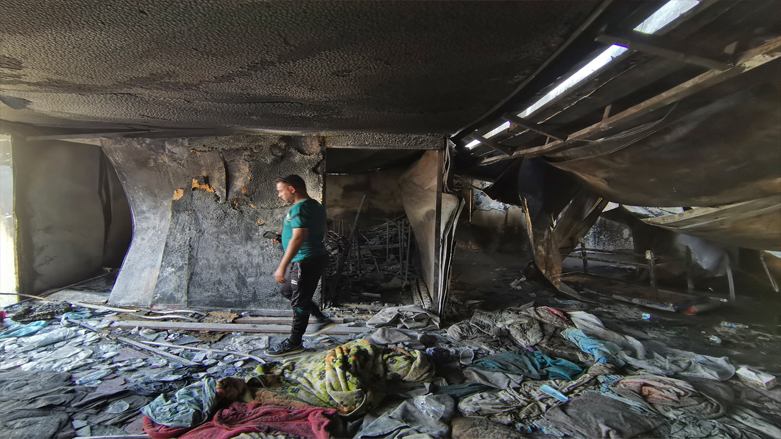KRG offers support for victims of Iraq coronavirus ward fire

ERBIL (Kurdistan 24) – The Kurdistan Regional Government on Tuesday expressed its readiness to aid Iraqi health authorities and victims of the devastating fire at a COVID-19 hospital in Dhi Qar province.
The fire at al-Hussien Teaching Hospital, initially believed to be the result of an oxygen cylinder explosion, killed at least 52 people and wounded 22 others in the southern Iraqi city of Nasiriyah.
The hospital’s COVID-19 ward had 70 beds for people with severe cases of the coronavirus, of which Iraq earlier on Monday recorded its highest daily infection rate for the year.
Speaking to Iraqi health officials on Tuesday, KRG Health Minister Saman Barzinji said the regional government was prepared to provide any necessary help for victims and healthcare workers, the ministry said in a statement.
Barzinji said the Kurdistan Region’s hospitals are also prepared to receive patients wounded in the fire.
The deadly incident is the second at an Iraqi COVID-19 treatment center in the last three months. In April a similar fire at Ibn al-Khatib Hospital in Baghdad killed 80 people and injured 100 more, and forced the health minister to resign.
Protesters poured onto the streets of Nasiriyah, Dhi Qar’s provincial capital, on Monday night, demanding the removal of top officials from their posts, citing poor administration and corruption at the highest levels.
The demonstrators chanted, “the [political] parties have burned us," AFP reported.
The province’s health director and head of al-Hussien hospital were both detained and questioned by police, the French news agency reported.
Iraq, reeling from decades of corruption and consecutive wars as well as US sanctions, has seen little investment in the healthcare sector upon which its people rely.